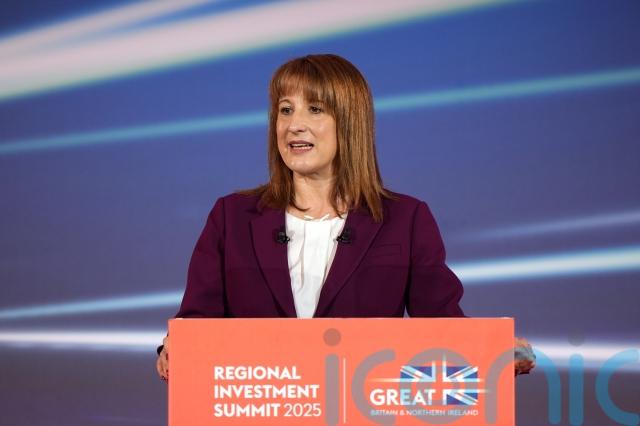
The pound has fallen sharply as worries over the UK’s bleak fiscal outlook weigh heavily before next month’s closely-watched Budget.
Sterling tumbled to a two-and-a-half-year low against the euro and a three-month low versus the US dollar, down 0.4% at 1.13 euros and 0.4% lower at 1.32 dollars, following steep falls on Tuesday.
It comes after reports that the UK’s independent fiscal watchdog, the Office for Budget Responsibility (OBR), had cut its productivity forecast – due to be unveiled in November’s Budget – by 0.3 percentage points, possibly leaving the Government facing a more than £20 billion hit to the public finances.
Each percentage point downgrade means the Chancellor needs to find around £7 billion to meet her plans.
This could leave Chancellor Rachel Reeves with a gap of more than £20 billion, even before paying for the expected abolition of the two-child benefit cap.
Fears are building that Ms Reeves may need to renege on the Government’s manifesto pledge not to raise taxes for working people as she needs to plug a gaping hole in the nation’s finances, with tax hikes and spending cuts expected in the Budget.
The pound’s falls also come before the Bank of England’s interest rate meeting on November 6, when it will publish accompanying quarterly growth and inflation forecasts.
The Bank is expected to keep rates on hold at 4% in the next decision, with some economists now not forecasting a cut until 2026 as stubbornly high inflation holds policymakers back from further reductions.
The Institute for Fiscal Studies (IFS) warned earlier this month that Ms Reeves could need to find £22 billion of tax rises or spending cuts if she is to restore the £10 billion of headroom she left herself against her debt targets in the spring.

Ms Reeves has been left with the gap in the public finances because of higher borrowing costs, persistent inflation and weaker growth, along with spending commitments including moves to partially reverse the cut to winter fuel payments and watering down its plans to cut welfare.
But Ms Reeves insisted on Wednesday that the UK does not have to “accept” grim economic forecasts.
Writing in the Guardian, the Chancellor admitted that productivity forecasts from the OBR may be gloomy, but that austerity, Brexit and the pandemic had left “deep scars” on the UK’s economy.
But she said she was “determined that we don’t simply accept the forecasts but we defy them” and would not “relitigate the past or let past mistakes determine our future”.
She added: “If productivity is our challenge, then investment is our solution.”
In a welcome bright spot for the Government, borrowing costs continued to come down, with the rally in gilts picking up pace on Wednesday.
The yield on a 10-year gilt eased back further, hitting lows not seen since December last year, at 4.39%.
Gilt yields move counter to the value of the bonds, meaning their prices rise when yields fall.
Subscribe or register today to discover more from DonegalLive.ie
Buy the e-paper of the Donegal Democrat, Donegal People's Press, Donegal Post and Inish Times here for instant access to Donegal's premier news titles.
Keep up with the latest news from Donegal with our daily newsletter featuring the most important stories of the day delivered to your inbox every evening at 5pm.